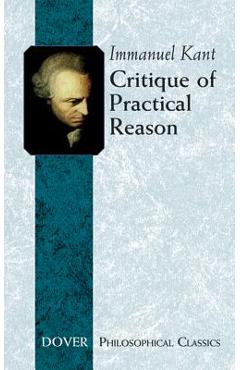
The second of Kants three critiques, Critique of Practical Reason forms the center of Kantian philosophy; published in 1788, it is bookended by his Critique of Pure Reason and Critique of Judgement .
With this work Kant establishes his role as a vindicator of the truth of Christianity; he approaches his proof by presenting positive affirmation of the immortality of the soul and the existence of God.
The philosopher offers an argument concerning the summum bonum of life: people should not simply search after happiness, but follow the moral law and seek to become worthy of the happiness that God can bestow.
This Critique comprises three sections: the Analytic, the Dialectic, and the Doctrine of Method.
The Analytic defines the ultimate moral principle, the categorical imperative, and argues that to obey it is to exercise a freedom.
The Dialectic make the assumption that immortality and God exist, arguing that pure practical reason falls into error when it expects perfection in this world; we should anticipate finding perfection in the next world, with Gods help.
The final section, the Doctrine of Method, offers suggestions in educating people in the use of pure practical reason.
A seminal text in the history of moral philosophy, this volume offers the most complete statement of Kants theory of free will and a full development of his practical metaphysics.
Todd D. Zakrajsek
327.82 Lei
John Austin
100.39 Lei
Pamela Rae Hughey
133.85 Lei
Jo Ann Allen Boyce
100.39 Lei
Danielle Leduc Mcqueen
83.42 Lei
Ripley'S Believe It Or Not!
167.12 Lei